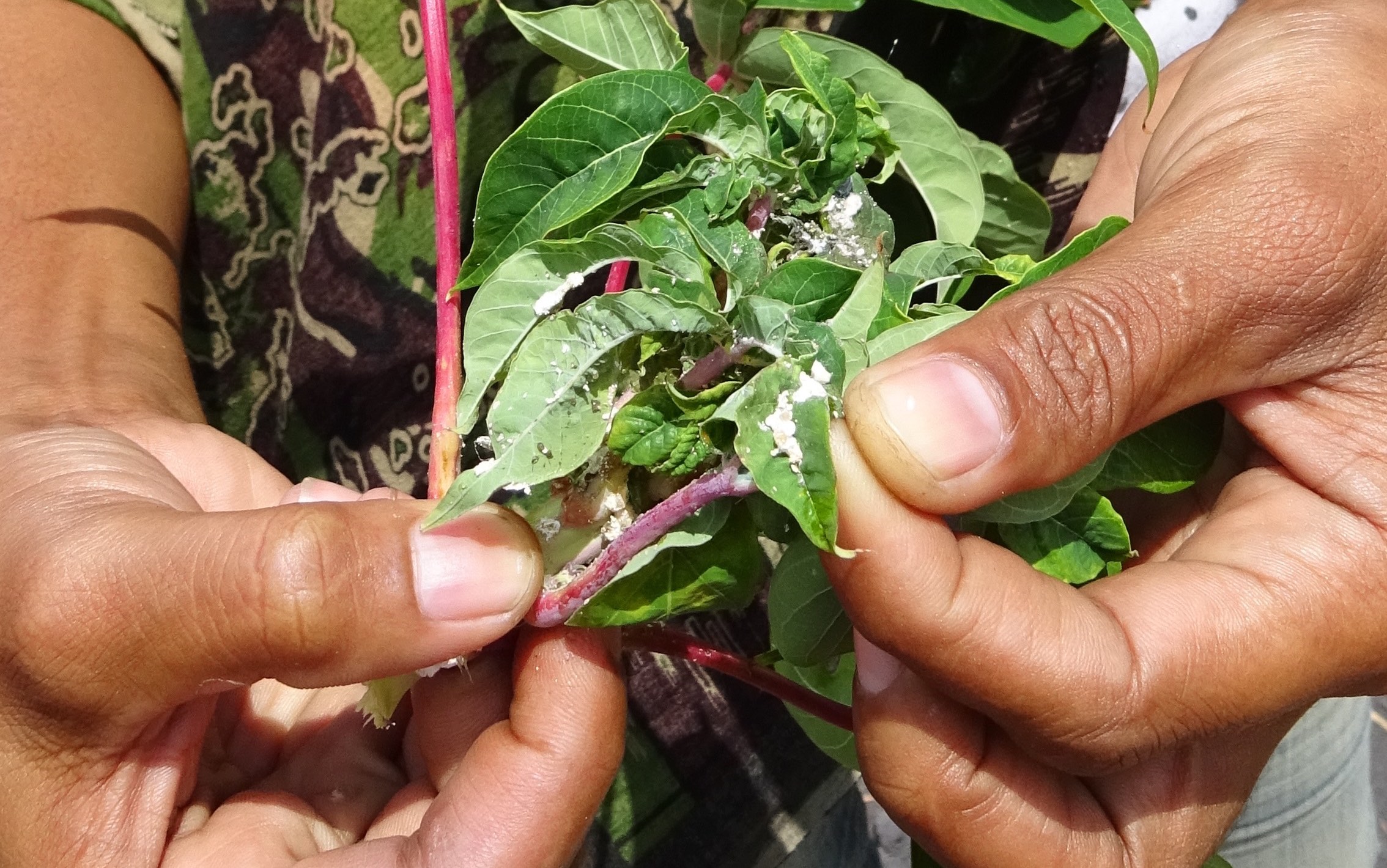An announcement for a new Broadway comedy? An economics-inspired sequel to A Bug’s Life or maybe the more recent Ant-Man movies? Indeed, entomologists and commodities brokers appear one of the oddest couples. It’s hard to imagine a weathered field entomologist with wading boots, insect pins, and butterfly net on the trading floor of the Chicago Board of Trade. And so is it to visualize a smartly-dressed broker (ear-on-the-phone; finger high up in the air; shoes with a mirror shine) in the midst of bug-filled cassava fields in some remote corner of tropical Southeast Asia.
Yet, a new paper in Environmental Research Letters (with a supporting piece in PeerJ) shows that ample benefits can be realized when entomologists (or agro-ecologists in general), government policy makers, and commodities traders establish an effective dialogue and learn from one another. A team including entomologists, economists, commodities trade specialists, and geographers explored the impacts of the 2008 invasion of Thailand’s cassava crop by a destructive crop pest—the cassava mealybug, Phenacoccus manihoti—on price fluctuations and trade flows within global commodities markets.
Our team—including scientists from the China Academy of Agricultural Sciences (CAAS) in Beijing, Wageningen University and Research in the Netherlands, Michigan State University, and CGIAR centers—showed how this wicked mealybug (which is only a couple of millimeters long, but has an impressive appetite) caused substantial yield loss in cassava (a starchy root crop widely grown in the tropics), triggering sharp surges in the price of various cassava products, including starch.
The parasitic wasp Anagyrus lopezi
As Thailand is a vital supplier of cassava products to China and the world’s largest exporter of internationally-traded starch, those mealybug-induced yield shocks coincided with major disruptions in trade flows of starch and increased price volatility in global markets for multiple competing commodities such as maize. In 2010, Thailand’s government introduced a 2-millimeter long parasitic wasp, Anagyrus lopezi, to address the problem. The wasps lay their eggs in the mealybugs and the larvae eat their way out—killing the hosts. Mealybug pest problems quickly subsided, cassava productivity was restored, and trade flows and pricing stabilized. As the eponymous Aliens picked off human soldiers one-by-one in that film, the wasps rolled back the mealybug invasion—yielding concrete benefits for the global commodities trade.
This new study is the first to spotlight the stabilizing effect that insect-mediated services such as natural pest control can have for globally-marketed commodities. It suggests that those with interests in commodities markets can benefit from reaching out to entomologists or agro-ecologists and governments on these issues. Swift and scientifically-guided action against debilitating invasive pests—for example, the maize pest the fall armyworm, which recently spread from Africa to South Asia —and efforts to bolster natural pest control in production systems of internationally-traded commodities can generate significant benefits.
“A key message for policy makers is that, when possible, governments facing large-scale crop management challenges should consider such ecosystems-based management approaches,” said IFPRI Research Fellow Wei Zhang, one of the study’s authors. “The potential is win-win from both economic and environmental perspectives.”
There are countless beneficial insects—far more than we can even imagine. As this work shows, through teamwork between scientists, policy makers, and business people, we can ensure that those insects continue to make a vital contribution to food security, farmer livelihoods, the environment, and the global economy. And—as a bottom line—even benefit the tie-clad broker in far-off Chicago.
Kris Wyckhuys is an agricultural entomologist with the China Academy of Agricultural Sciences (CAAS) in Beijing.







